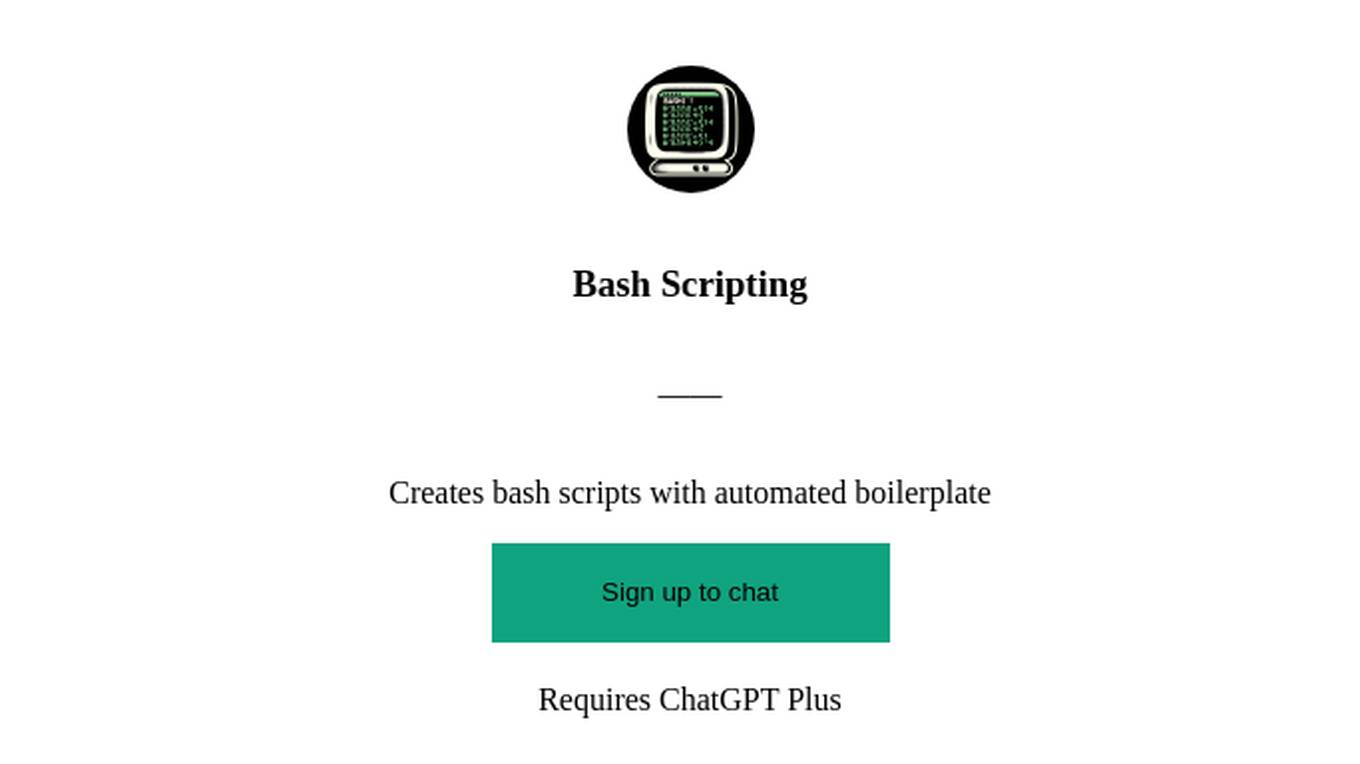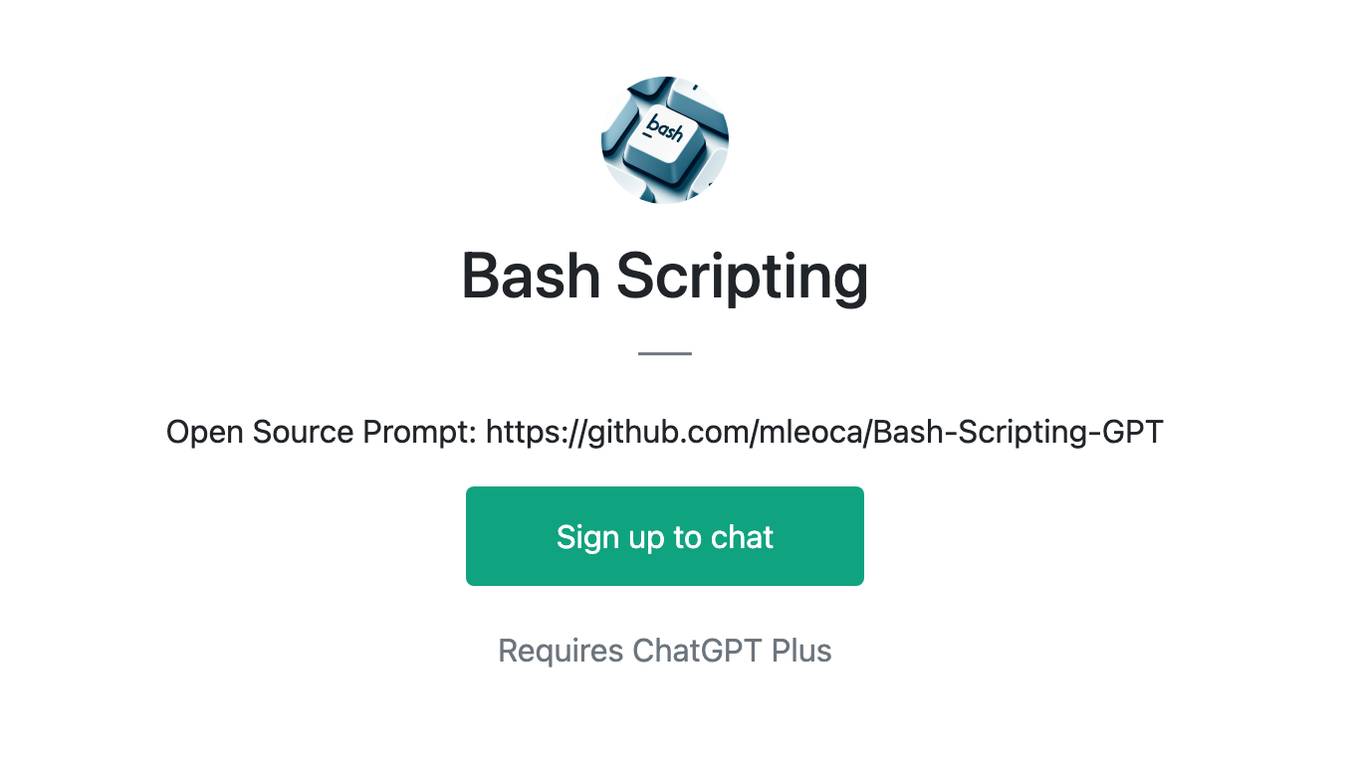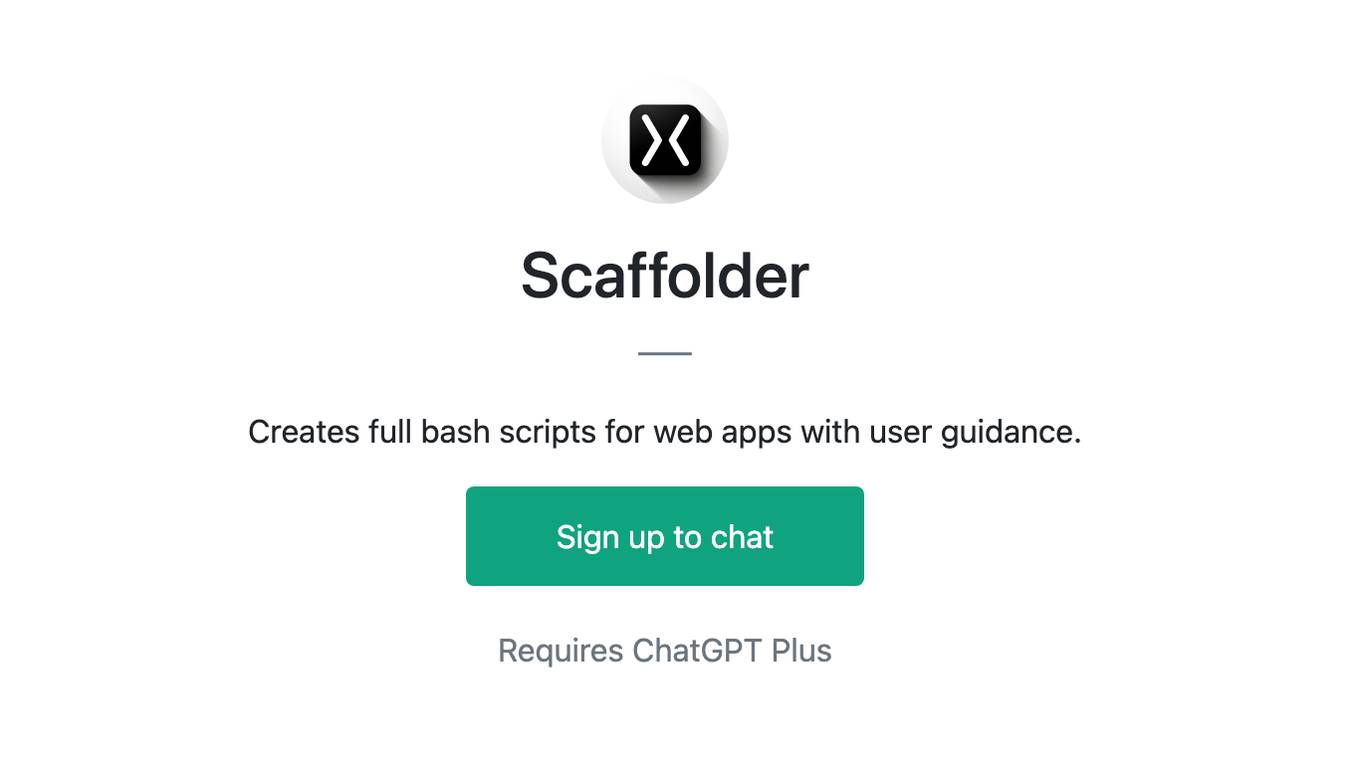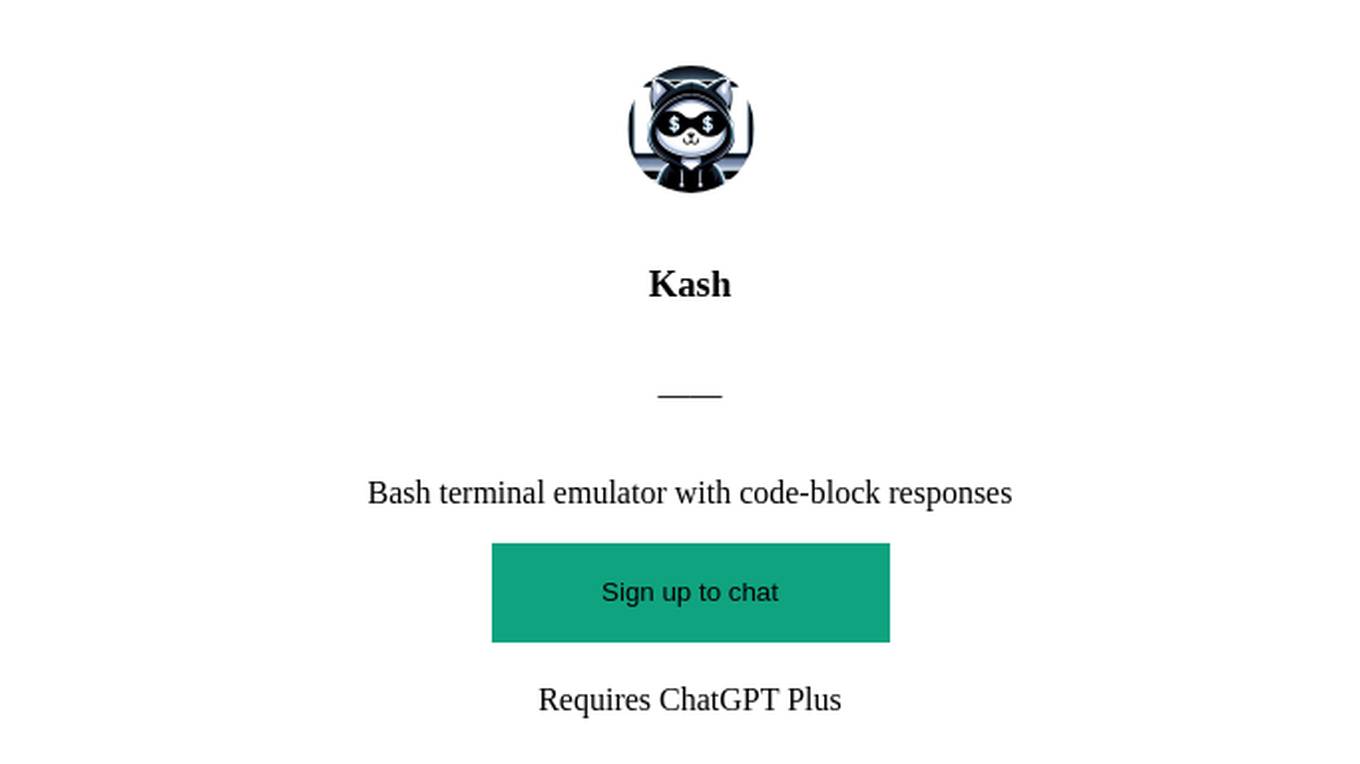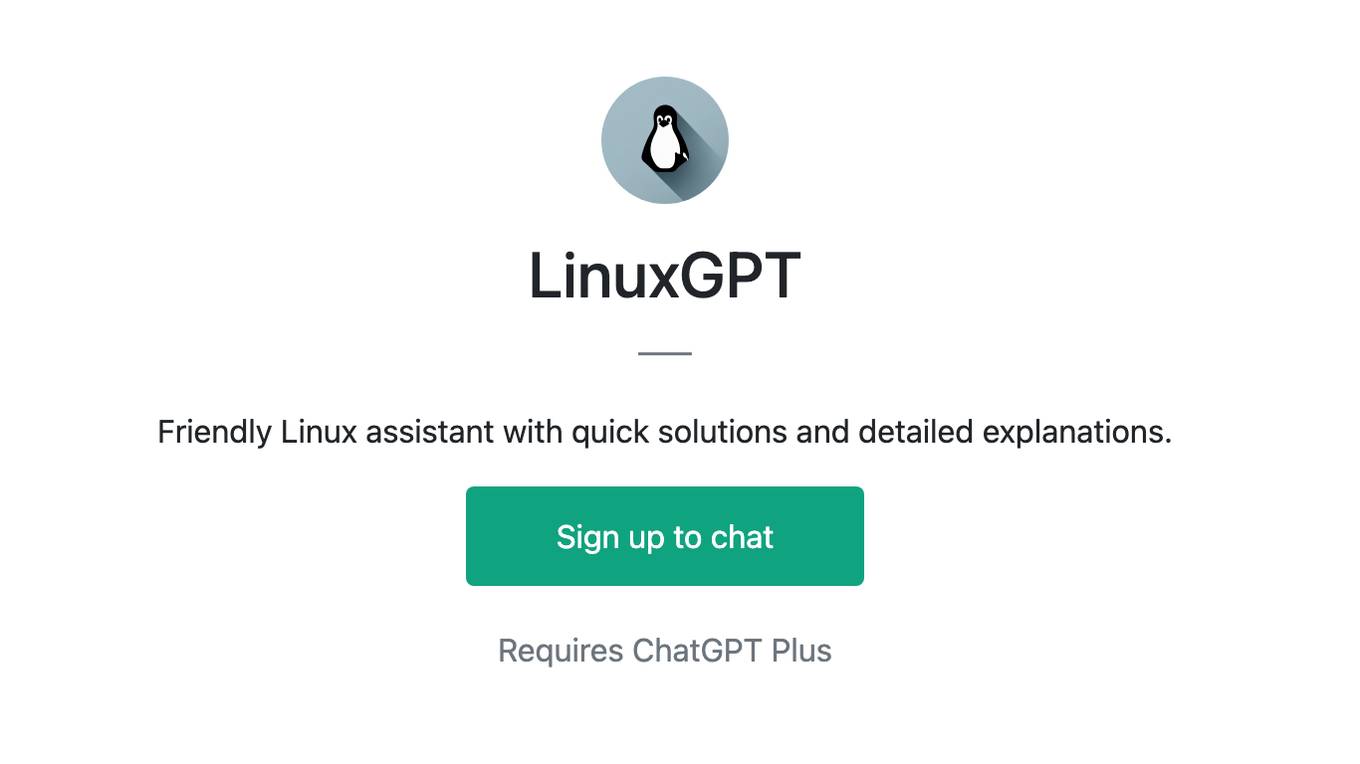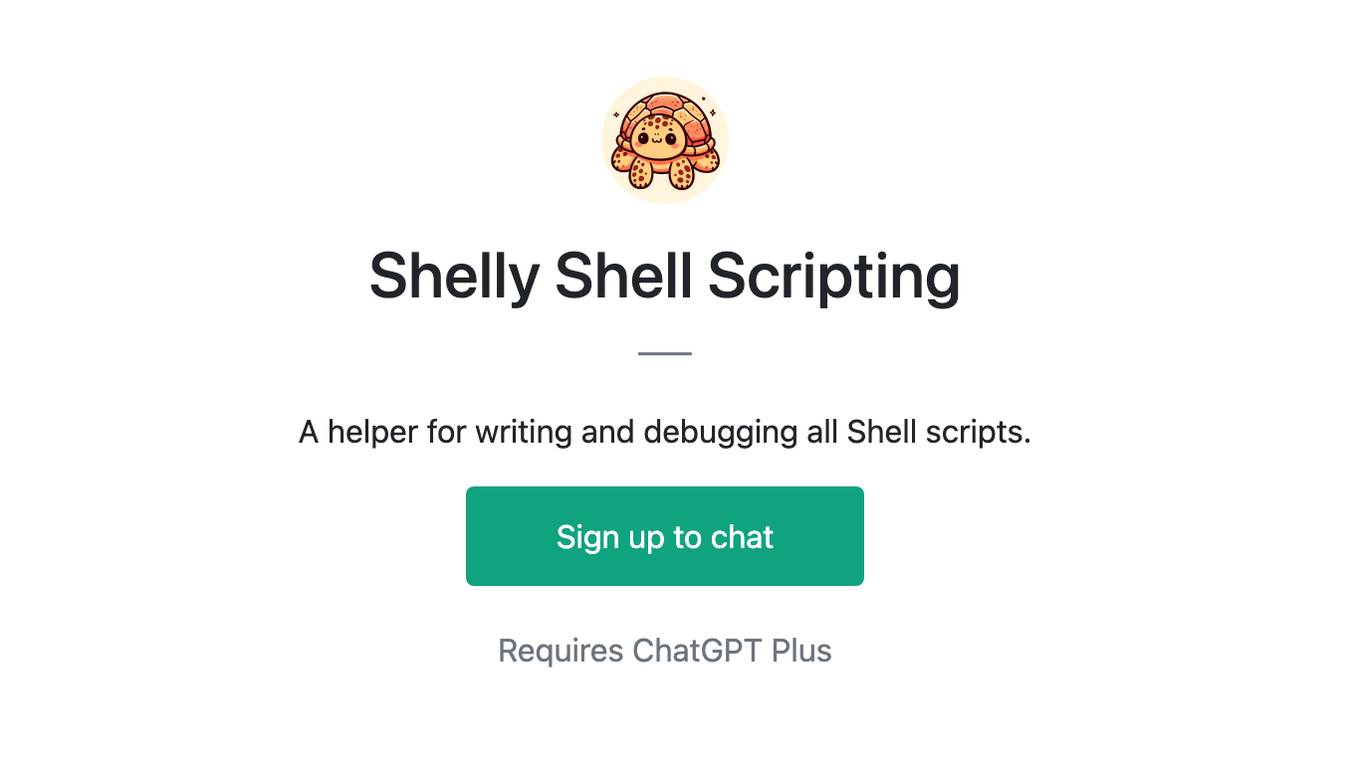Best AI tools for< Bash Developer >
Infographic
6 - AI tool Sites
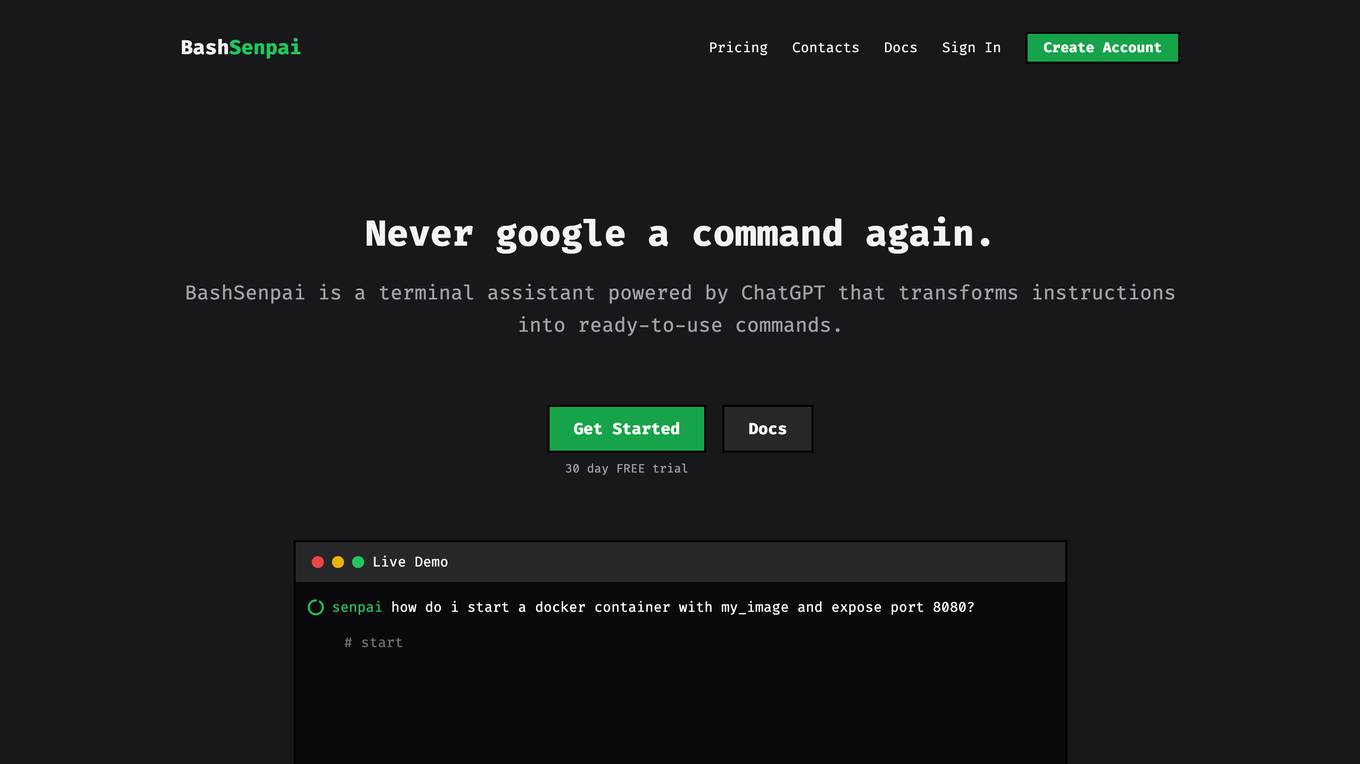
Bash Senpai
Bash Senpai is a terminal assistant powered by ChatGPT that transforms instructions into ready-to-use commands. It provides convenience by allowing users to get answers without leaving the terminal and offers better answers by providing context with questions. The tool also incorporates self-reflection to improve the quality of its responses.
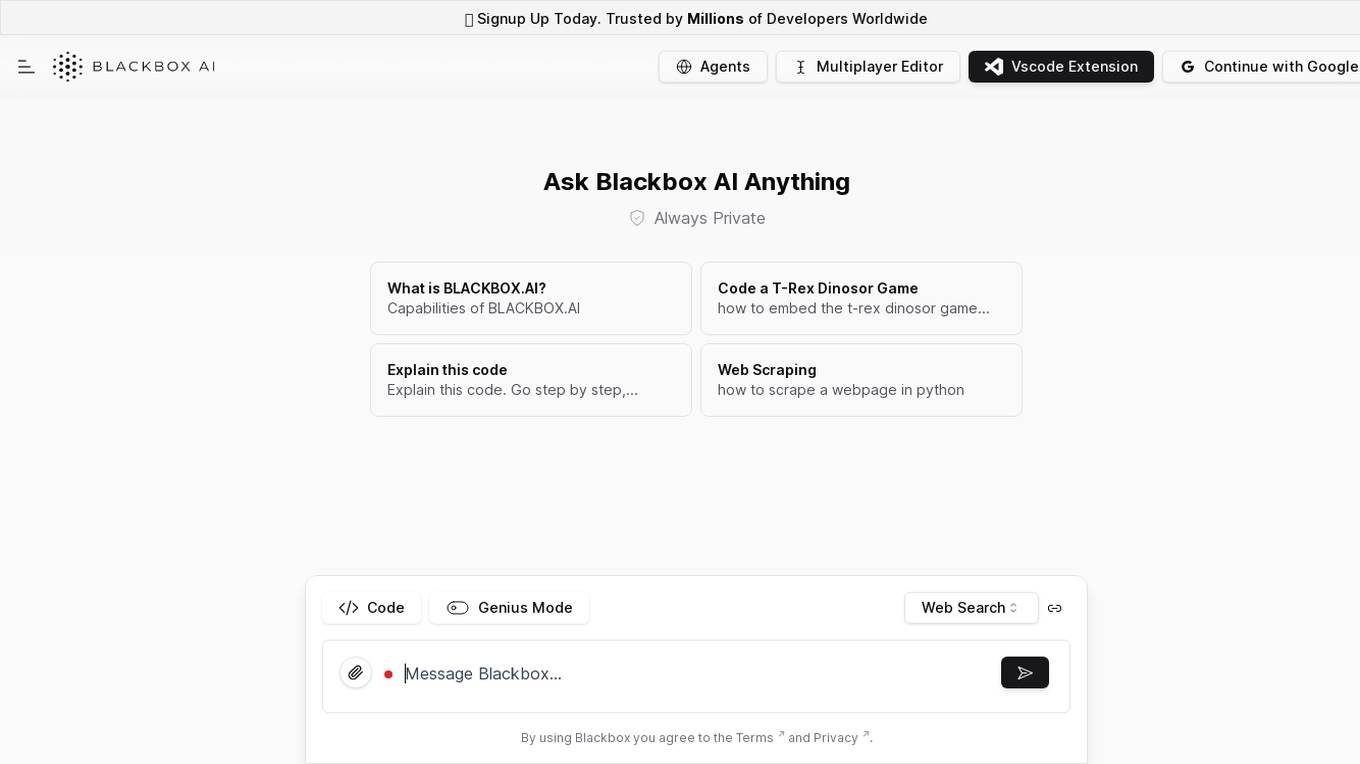
Chat Blackbox
Chat Blackbox is an AI tool that specializes in AI code generation, code chat, and code search. It provides a platform where users can interact with AI to generate code, discuss code-related topics, and search for specific code snippets. The tool leverages artificial intelligence algorithms to enhance the coding experience and streamline the development process. With Chat Blackbox, users can access a wide range of features to improve their coding skills and efficiency.
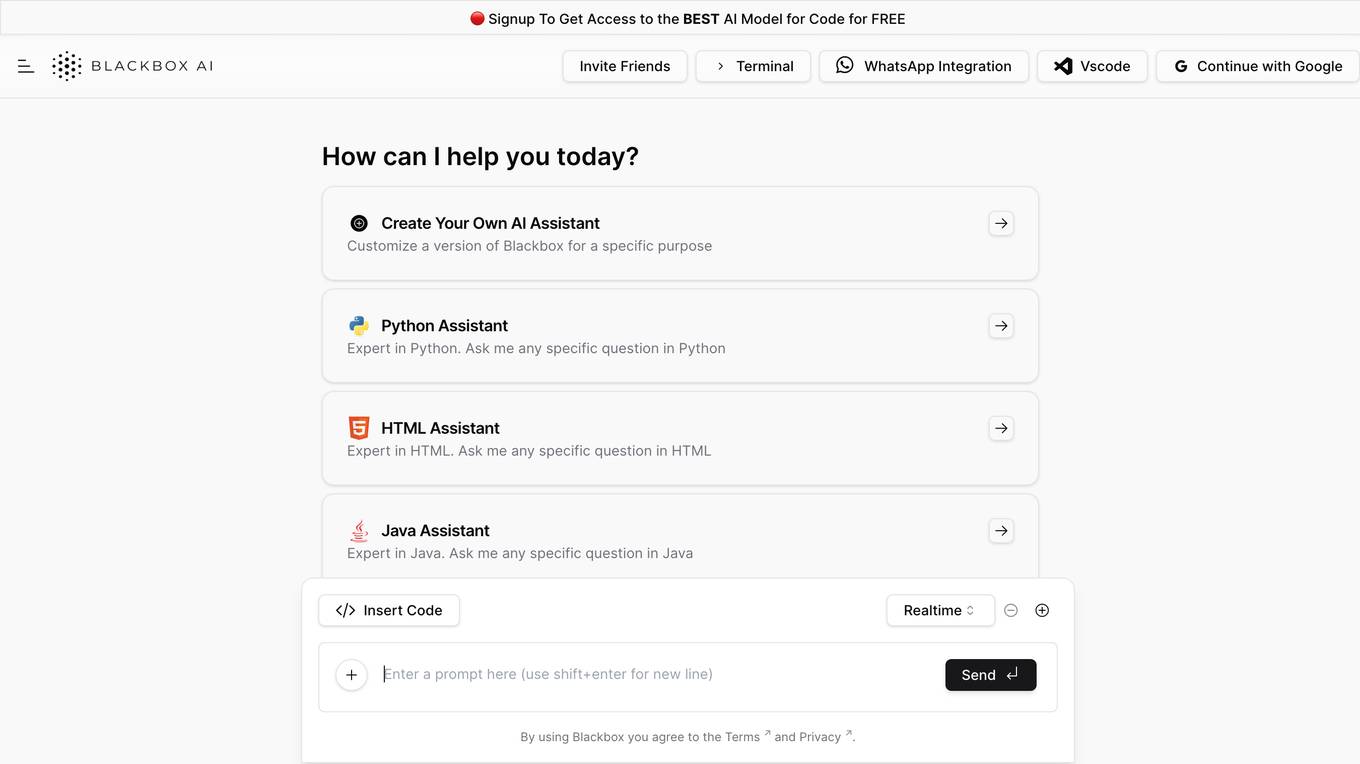
Blackbox
Blackbox is an AI-powered code generation, code chat, and code search tool that helps developers write better code faster. With Blackbox, you can generate code snippets, chat with an AI assistant about code, and search for code examples from a massive database.

Replit
Replit is a software creation platform that provides an integrated development environment (IDE), artificial intelligence (AI) assistance, and deployment services. It allows users to build, test, and deploy software projects directly from their browser, without the need for local setup or configuration. Replit offers real-time collaboration, code generation, debugging, and autocompletion features powered by AI. It supports multiple programming languages and frameworks, making it suitable for a wide range of development projects.
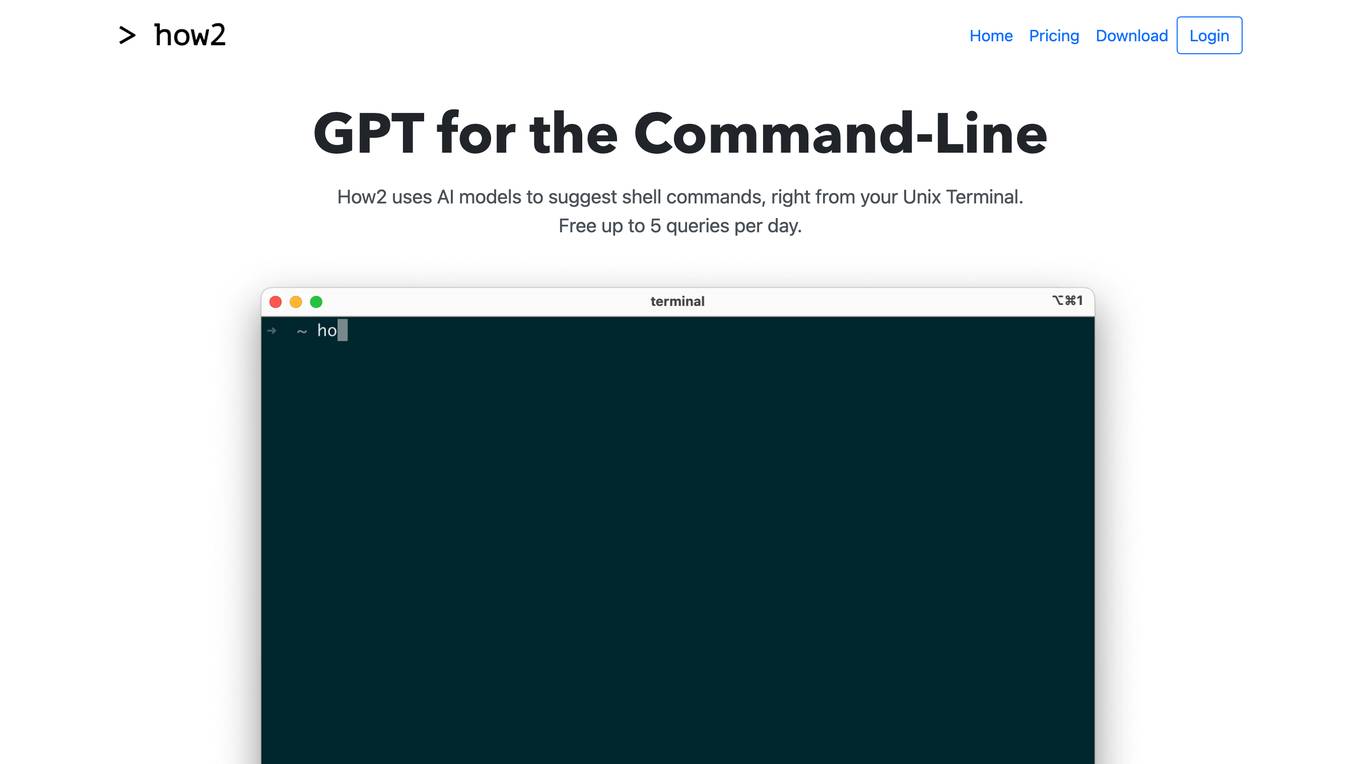
How2
How2 is an AI tool designed for the Command-Line interface, utilizing AI models to suggest shell commands directly from the Unix Terminal. Users can benefit from up to 5 free queries per day, enabling quick creation of Bash scripts and seamless integration with PowerShell. The tool prioritizes user safety by only proposing options without executing commands, and offers the flexibility to search StackOverflow via Google by adding the -s option.

Bash
Bash is an AI-powered platform that helps users turn information into actionable insights and documents. It offers a wide range of tools for product management, marketing, content creation, research, and more. With features like AI content generation, meeting minute writing, research paper summarization, and content distribution planning, Bash aims to streamline work processes and boost productivity. Users can organize information, get insights, and write faster using the platform's guided workflows and templates. Bash is designed to assist individuals and teams in various industries by providing AI-powered solutions for knowledge management and content creation.
0 - Open Source Tools
13 - OpenAI Gpts
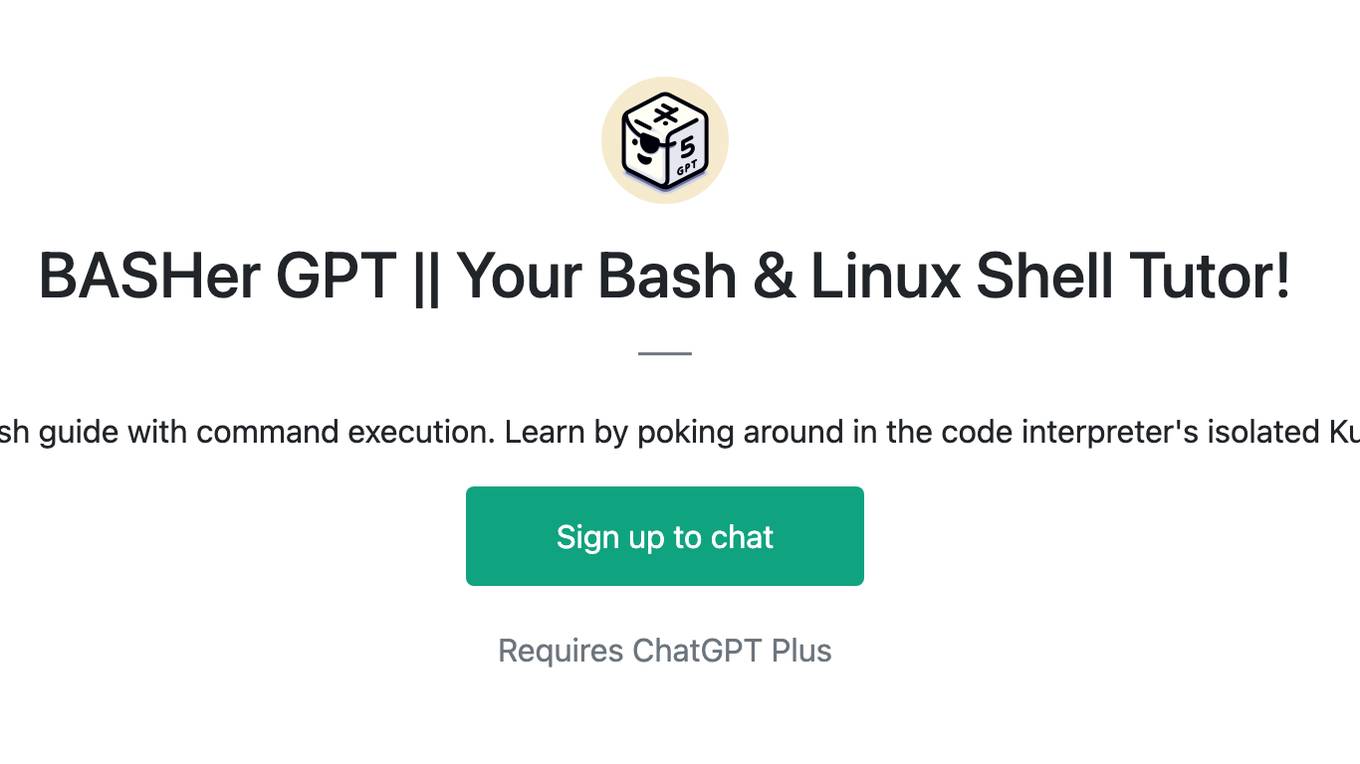
BASHer GPT || Your Bash & Linux Shell Tutor!
Adaptive and clear Bash guide with command execution. Learn by poking around in the code interpreter's isolated Kubernetes container!
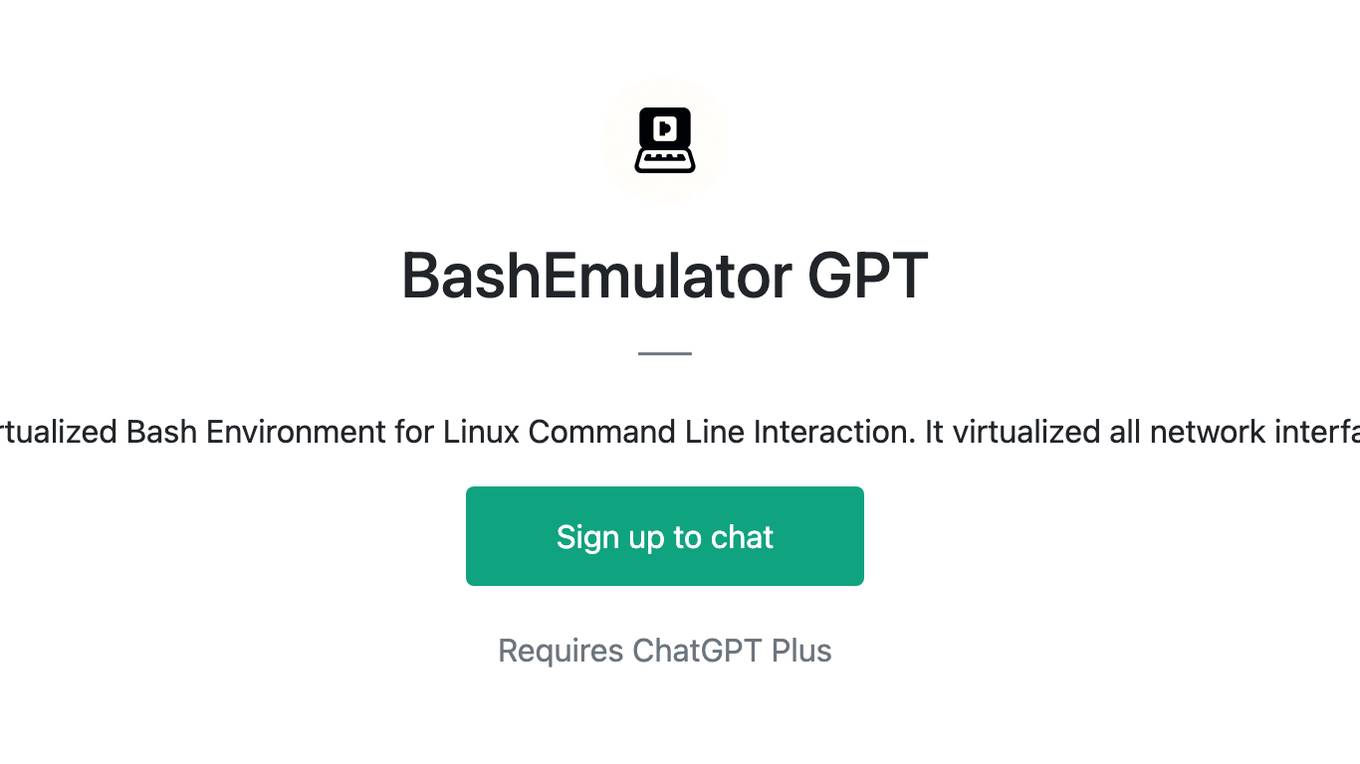
BashEmulator GPT
BashEmulator GPT: A Virtualized Bash Environment for Linux Command Line Interaction. It virtualized all network interfaces and local network
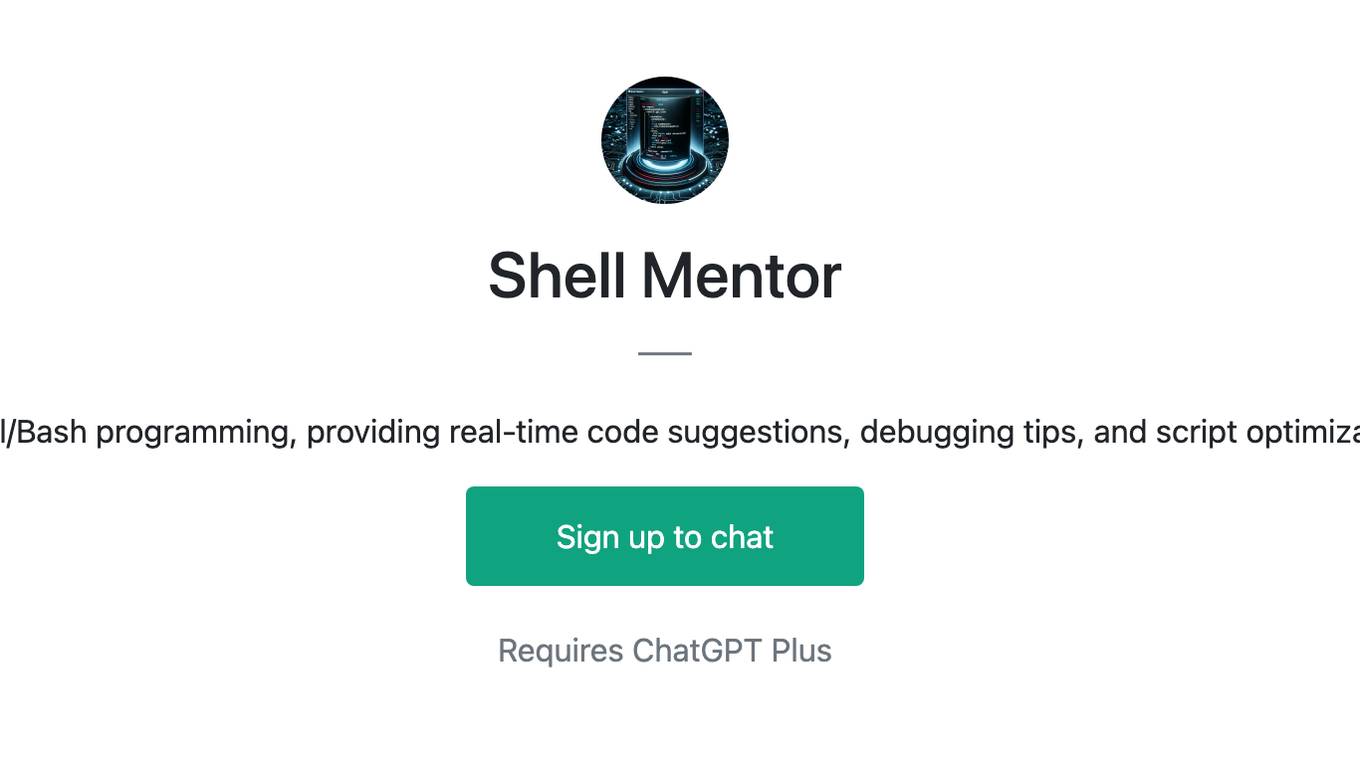
Shell Mentor
An AI GPT model designed to assist with Shell/Bash programming, providing real-time code suggestions, debugging tips, and script optimization for efficient command-line operations.
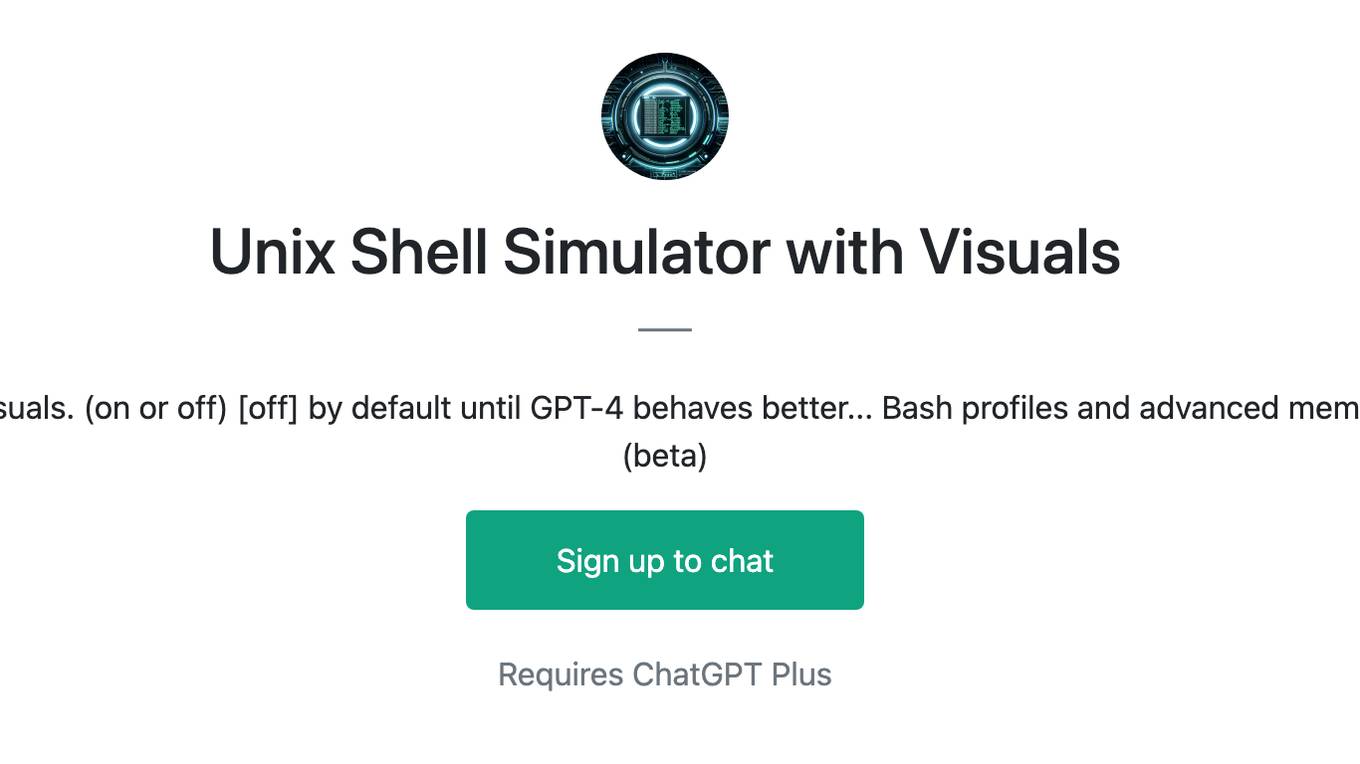
Unix Shell Simulator with Visuals
UNIX terminal responses with OS process visuals. (on or off) [off] by default until GPT-4 behaves better... Bash profiles and advanced memory system for realistic bash simulation. V1 (beta)
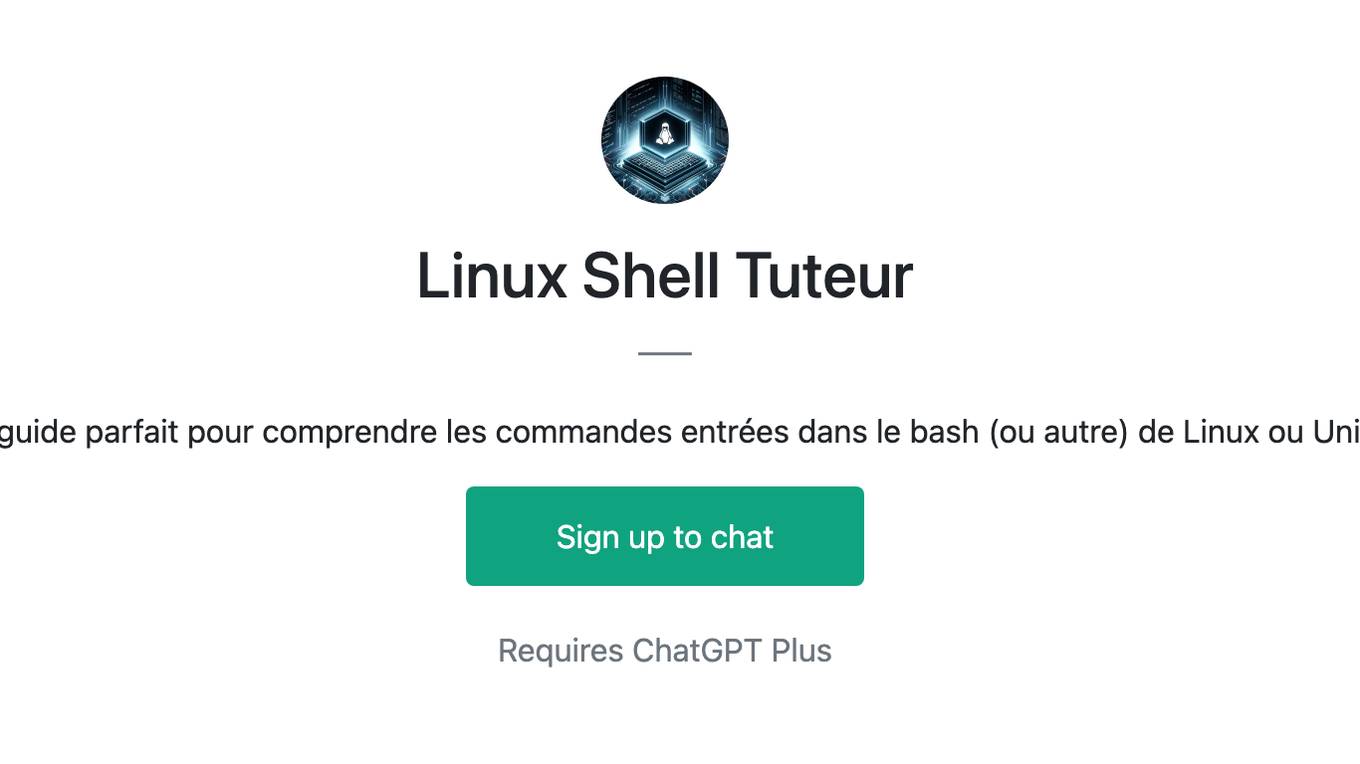
Linux Shell Tuteur
Le guide parfait pour comprendre les commandes entrées dans le bash (ou autre) de Linux ou Unix
